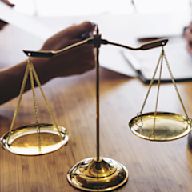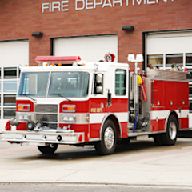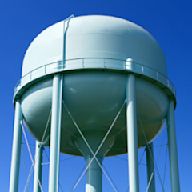Search results
Jun 17, 2024 · New Jersey political insiders struggled to come up with big enough words Monday morning morning to describe what they were hearing: The state attorney general was about to indict South...
- The Branches of Government
- Legislators
- Legislative Districts
- Legislative Elections
- Legislative Sessions
- Legislative Organization
- Party Influence
- Legislative Powers
- Forms of Legislative Action
- The Budget Process
The government of the State of New Jersey, like that of the United States, is divided into three coequal branches: the legislative, the executive, and the judicial. The principal function of the Legislature is to enact laws. The Executive Branch (the Governor, Lieutenant Governor and State agencies) carries out the programs established by law. The ...
The Legislature consists of two Houses: a 40-member Senate and an 80-member General Assembly. The Senate and Assembly chambers are located in the State House in Trenton. Senators must be at least 30 years old and residents of the state for four years prior to election. Members of the Assembly must be at least 21 and state residents for two years. A...
Legislators are elected from 40 legislative districts of substantially equal population. The voters in each district elect one Senator and two members of the General Assembly. Every ten years, after the Federal census, the boundaries of the 40 districts are redrawn to maintain an equal population in each district. This reapportionment of districts ...
Legislative elections are held in November of each odd-numbered year. Members of the Assembly serve two-year terms. Senators serve four-year terms, except for the first term of a new decade, which is only two years. This "2-4-4" cycle allows for elections from new districts as soon as possible after each reapportionment. Interim appointments are ma...
The New Jersey Constitutionprovides that each Legislature is constituted for a term of two years, split into two annual sessions. Because the Constitution also specifies that all business from the first year may be continued into the second year, the distinction between the two annual sessions is more ceremonial than actual. The two-year legislativ...
Each House elects a presiding officer from among its members - the President of the Senate and the Speaker of the General Assembly. The Senate President and Assembly Speaker are second and third in line of succession to the governorship after the Lieutenant Governor. The President and the Speaker have broad powers within their Houses. They decide t...
When the majority membership of either House belongs to the same political party, that party is said to “control” the House. The presiding officer is a member of the majority party and, in his or her official capacity, able to support the party’s policy goals by setting the agenda of the House. Committee chairs are members of the majority party, an...
The chief function of the Legislature is to enact laws. A proposal to make a new law, or to change or repeal an existing law, is presented to the Legislature as a bill. To become law, a bill must pass both Houses by a majority vote and be approved by the Governor. How a Bill Becomes Lawpresents the steps in the process. The Legislature can also pro...
Formal legislative action is expressed through the passage of a bill, or by adoption of a resolution, which expresses the sentiments or opinions of the members. There are three types of resolutions. A joint resolution must pass both Houses and be signed by the Governor. A concurrent resolution must pass both Houses, but is not presented to the Gove...
The State operates on a fiscal year that begins on July 1 and ends the following June 30. The Governor delivers the annual budget message to the Legislature for the ensuing fiscal year on or before the third Tuesday following the first meeting of the Legislature, except in a gubernatorial inaugural year when it is delivered later. (Text of the prop...
The Office of Legislative Services is an agency of the Legislature established by law to provide professional, nonpartisan staff support services to the Legislature and its officers, members, committees and commissions.
Jun 17, 2024 · Office of New Jersey Governor Phil Murphy. Governor Murphy Campaign Promise Tracker. Governor Murphy has completed or made meaningful progress on 51 out of 52 original campaign commitments. LEARN MORE. Strengthening Youth Mental Health.
News about New Jersey, George Norcross, political machines
News about NFI, tax credits, CEO
News about NJ, pardons, clemency initiative
Also in the news
Mar 4, 2024 · For better or worse, New Jersey’s Lines Lawsuit could potentially upend how political parties select their candidates. The original lawsuit challenging the constitutionality of New Jersey’s county organization line system was filed on July 6, 2020, initially with now-retired U.S. District Court Judge Freda Wolfson.
Mar 29, 2024 · Voting rights advocates scored a major victory Friday in New Jersey when a federal judge struck down the use of a controversial primary ballot design that favored party-backed candidates.
People also ask
Will New Jersey use office-block ballots in the June Democratic primary?
What are the three branches of government in New Jersey?
How do New Jersey primary elections work?
Does New Jersey have a 'county line' ballot?
Is New Jersey's Democratic political boss system dead?
What is the Office of Legislative Services?
Apr 17, 2024 · New Jersey must use office-block ballots in the June Democratic primary after a federal appeals panel said it’s keeping in place a lower court’s preliminary injunction, doing away with the...














